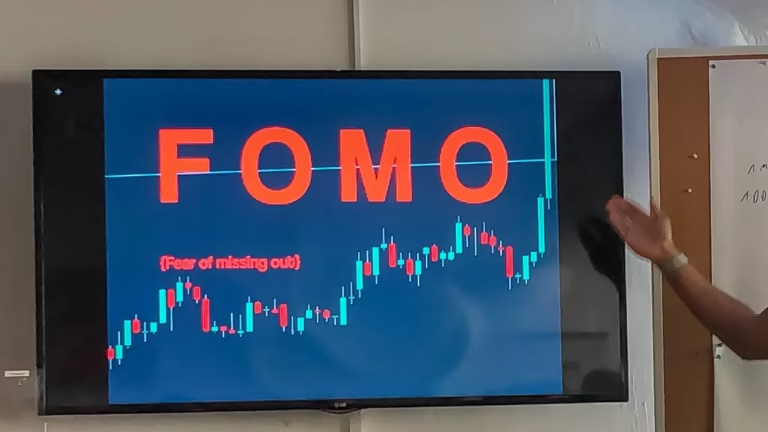How to have a great support system in your corner
I am a certified coach and an experienced mentor.
For many people, it isn’t immediately clear what the difference is. Let me tell you a story. After that, we will dive a little deeper into the official definition. In the end, I’ll let you know how it might apply to you as an investor.
Here is the story of Maria:
Several years ago I was invited to help a client to develop a peer-coaching program for a specific project team. The group of approximately 15 people was working very hard but all had a very scientific, systematic, task-oriented personality style.
The team had been created from scientific specialty areas. One special aspect was the fact that the project was international, members would have a lot of communication needs across multiple languages and time zones, and culturally different regions of the world. In addition, a lot of the work needed to be managed in work streams and packages while aiming towards distant milestones, years in the future.
While introducing the concept of peer-coaching, I also explained how business coaching applying my GROWER model works, how sessions are structured, and what benefits a participant in a coaching program could expect.
Maria was one of the team members of the project. She comes from a heritage of both Scandinavian and Asian parents. That made her very diligent and reserved. In what turned out to be a very rare moment of bravery for her, as she called it, she started talking to me during dinner after the training program. We never really determined if it was coincidental because she was seated next to me or deliberate because she really felt the urge to engage. Maria said:
“Dr. Meierhoefer. I really liked your training today and was very interested to learn about business coaching. To me, the main thing I would be looking for is someone who can help me improve myself and get better. Is that something you could do?”
We talked a little about it and Maria was asking to be coached, rather than getting advice or training.
I worked with the company to get funding for her request and then we started coaching twice a month.
Coaching is a very personal and protected activity, and it is important to preserve confidentiality at all times. In a nutshell, here is what Maria told me she wanted to improve:
I have always been very shy and reserved and want to learn to communicate better, gain the confidence to speak up, maybe even present to our team or when we conduct workshops with the team in Italy, and overall gain confidence in myself and my abilities.
I asked Maria if she had any ambitions to get promoted, maybe become a manager of a sub-team and after this project is completed, take on management and leadership responsibilities?
You should have seen her face. She looked simultaneously shocked, afraid, perplexed, and embarrassed. Maria was wildly shaking her head and repeating several times:
No way. I could never do that! I start shaking when I am asked a question in a meeting even if I know the answer. I still can’t believe that I asked you to coach me and if you would suggest for me to lead one of our meetings I would probably get sick to my stomach”.

Ok, so I knew what our starting point was.
I’ll spare you all the details but through regular coaching sessions every two weeks for almost a year, we worked gently but deliberately to overcome a lot of those reservations and completed a lot of exercises that helped Maria gain confidence, speak up, focus on the process, recognize praise when she received it, which was much more frequently than she had realized, and a bunch of other things.
With the first year of coaching coming to an end, her boss asked me if we would need more funding to continue, how long this would take overall, and what he could expect. He had mentioned several times during the year how many great improvements he had seen from Maria and told me how shocked he was when she volunteered to lead a sub-project of the program a few months ago and even help several presentations with the Italians.
To me, it was the transition point to Mentoring.
Maria wanted to get help to find a path, find her goals, find her personal, unique way of working and engaging with her colleagues. She accomplished that fabulously.
Now the focus shifted towards guidance.
Very shortly after the holidays and the start of her mentoring Maria said:
It might sound ungrateful but I really don’t feel a lot of joy and excitement in my work anymore. I feel I could do more but in this huge company, it would take me forever to get to the next level and who knows if I like that better. What do I do?
This is a sure sign that mentoring is the right approach, combined with some attributes of coaching. As Maria’s coach, I worked with her to determine what she was looking for. I helped her build self-confidence and become sure of herself.
Maria wanted to take on more responsibility. She wanted to be more in charge., she wanted to be closer to the decision-making process. And she wanted to involvement in a product or service that made a difference in people’s life.
Learning about these goals was the coaching part. As her mentor I can help her because I have been in government work (Air Force), private industry (executive), and consulting across multiple industries Maria was interested in. As her mentor, I could use my experience, update it to what’s currently going on in the industry, and then apply it to Maria’s situation.
We worked out a plan that included an updated resume for Maria. We set up online profiles, especially on LinkedIn and Indeed and a few other platforms. We practiced interviewing and Maria accepted some interview invites even for positions she would not really accept if offered.
We worked on negotiations for a contract well before an actual offer was extended to her.
Ultimately, the day of the real deal came along. The Vice President of a company that was rapidly growing asked if Maria if she was open to interviewing for a position they offered.
Maria did (and splendidly at that), was offered the position and within 4 months negotiated a promotion into a management position. She now leads a team that produces one of the most successful products for the company.
Whenever I look back to the transformation that Maria accomplished, the image of a small seedling that found a way to emerge out of the crack on the side of a road comes to mind. The seedling wasn’t colorful and nobody gave it much of a chance to ever become anything. Now that seedling became an amazing tree that is so impressive when it blooms that everybody wants to be near it and would never want it to be taken out of the neighborhood.

As promised, here are the definitions for coaching and mentoring I found:
The Institute for Life Coaching definition:
Coaching is a professional relationship that helps people produce extraordinary results in their lives, careers, businesses, or organizations, helping them to bridge the gap between where they are now and where they want to be. Coaches partner with their clients to design the life they want, bring out their clients’ own brilliance and resources so that they can achieve excellence and create purposeful, extraordinary lives. By creating clarity, coaching moves the client into action, accelerating their progress by providing greater focus and awareness of all the possibilities which exist to create fulfilling lives.
Coaching as defined by the International Coaching Community
Coaching has been defined in many ways. The essence of coaching is:
- To help a person change in the way they wish and helping them go in the direction they want to go to.
- Coaching supports a person at every level in becoming who they want to be.
- Coaching builds awareness, empowers choice, and leads to change.
It unlocks a person’s potential to maximize their performance. Coaching helps them to learn rather than teaching them.
Coaching has traditionally been associated with sports. Every top athlete has a coach. In the last few years, coaching has become applicable in every area, in business, and in every aspect of life as well as sport.
Mentoring as defined by National Mentoring Resource Center
Mentoring takes place between young persons (i.e., mentees) and older or more experienced persons (i.e., mentors) who are acting in a non-professional helping capacity to provide the support that benefits one or more areas of the mentee’s development.
Mentoring may be best understood using a multi-level framework. Successfully advancing the quality and availability of mentoring is expected to involve coordinated efforts across multiple levels.
According to Aston University in Britain, here is a summary of a few of the benefits of mentoring:
- Gain practical advice, encouragement, and support.
- Learn from the experiences of others.
- Increase your social and academic confidence.
- Become more empowered to make decisions.
- Develop your communication, study, and personal skills.
- Develop strategies for dealing with both personal and academic issues.





